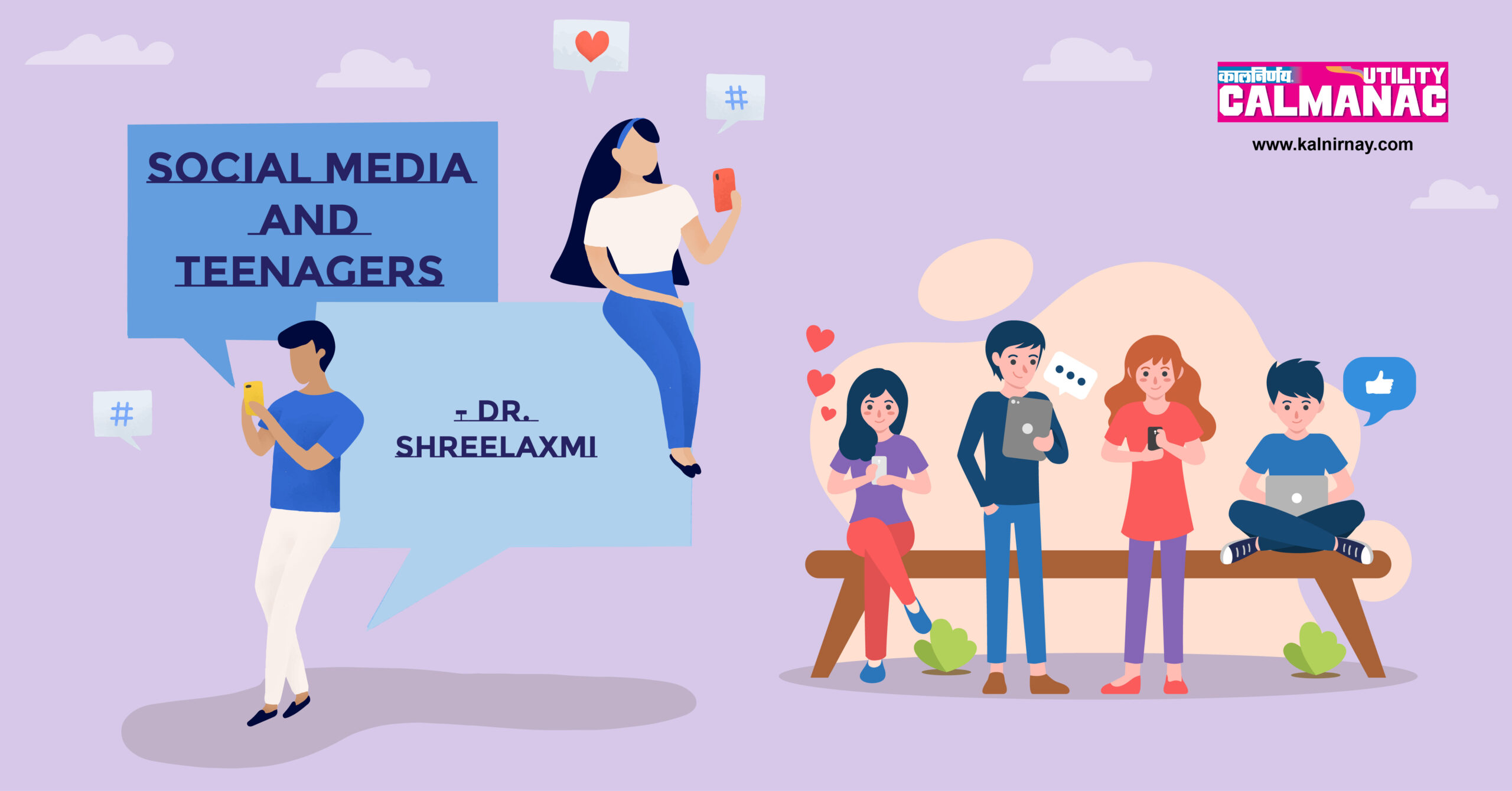Over the last decade, the internet has taken the world by storm, making it a much smaller place through social media. No matter where you are, with just a tap on a screen, you can “stay connected” Dr Shreelaxmi brings forth certain important aspects…
Teenagers are the defining users of the internet and social media, which include social networking sites and apps like Facebook, Instagram, Snapchat, Twitter, WhatsApp and other messaging applications. Keeping in touch with friends, being a part of group conversations, learning about current events and staying up to date, meeting new people and feeling bored are some of the common reasons cited for use of social media by teens. Without a doubt, socialization via the internet is a very important aspect of connecting in today’s world, but it comes at a heavy price.
Kids spend so much time online that they are disconnected from the real world. Maximum efforts on an outing are to take the perfect selfie to post online after than enjoy one’s surroundings. Vacations are often spent indoors chatting on the phone rather than playing outdoors or spending time with loved ones. We have forgotten how to live and enjoy life using our senses and with inactivity stacked dozens of unhealthy lifestyle disorders like obesity and diabetes from a young age. Most teens are up till late at night checking updates on social media or chatting online, neglecting essential rest the body needs. Poor sleep impacts health, immunity, memory and causes behavioural issues like irritability and mood swings.
The critical social skill of having a conversation is lost. When chatting, key aspects like body language, reactions/ expressions, and intonations are invisible due to which the child is unable to comprehend real-time conversations and tends to become socially anxious.
One’s image amongst peers is of utmost importance to a teenager. The pressure to look “perfect” or do “cool” things often leads to them spending hours agonizing over what to post online or taking untoward risks. For many, being online means being alive. It is forgotten that these posts do not depict the full story and are just a tiny filtered moment of a person’s life. This constant comparison and need to keep up leads to insecurity, low self-esteem, poor body image and in severe cases anxiety and depression. Despite having a hundred friends online, one is still lonely.
The need to be constantly in touch means you are never really alone and there are no boundaries or space. Even for a minute if there is no reply, there is instant panic and if in a relationship, the other person just disappears with no explanation, one is left imagining the worst about oneself and may even contemplate suicide.
Being online gives a false sense of security, whereby things that you would normally never say to anyone’s face are messaged or posted without a second thought. Also, a lot of personal information is shared online making one vulnerable. Consequences are often misjudged and inhibitions lost as seen in cases of stalking, cyberbullying and sexting.
So does this all mean that we stop everything and go back to the dark ages? Definitely NOT! But what can parents do to help? Here are some tips…
- Delay age of first use of the internet and social media as much as possible. Many parents use phones as a means to keep the child out of their hair making this the child’s first encounter with a screen and validates a person being replaced by a touchscreen.
- Lead by example – Monitor and limit your own usage of computers/ phones at home. Avoid bringing work home. Set technology-free hours every day, where no one uses any gadgets and time is spent on conversations, shared activities or chores.
- Be available – Spend time listening to your children. Encourage them to share their experiences at school or with friends and guide them to solutions for any problems they may face. This helps them express themselves better and provides emotional security.
- Educate – to look out for privacy and stay safe online. Monitor their usage and encourage the use of the internet for knowledge purposes rather than socializing or leisure.
- Encourage outdoor activities – that they are interested in or good at. This will help boost self-esteem, encourage one – on – one interaction and help negotiate difficulties of initiating and maintaining a conversation/ friendship.
- Red flags to watch out for – (i) excessive time spent on social media or internet neglecting other daily activities, (ii) sudden decline in school performance, (iii) persistent sadness, withdrawn behaviour, (iv) constantly restless, (v) thoughts of harming oneself. Immediately consult a mental health professional like a psychiatrist or a certified counsellor.
In the words of Erik Qualman, “We don’t have a choice on whether we DO social media; the question is how well we DO it.”
To read more English blogs, visit our blog section.
Shreelakshmi Vaidyanathan

